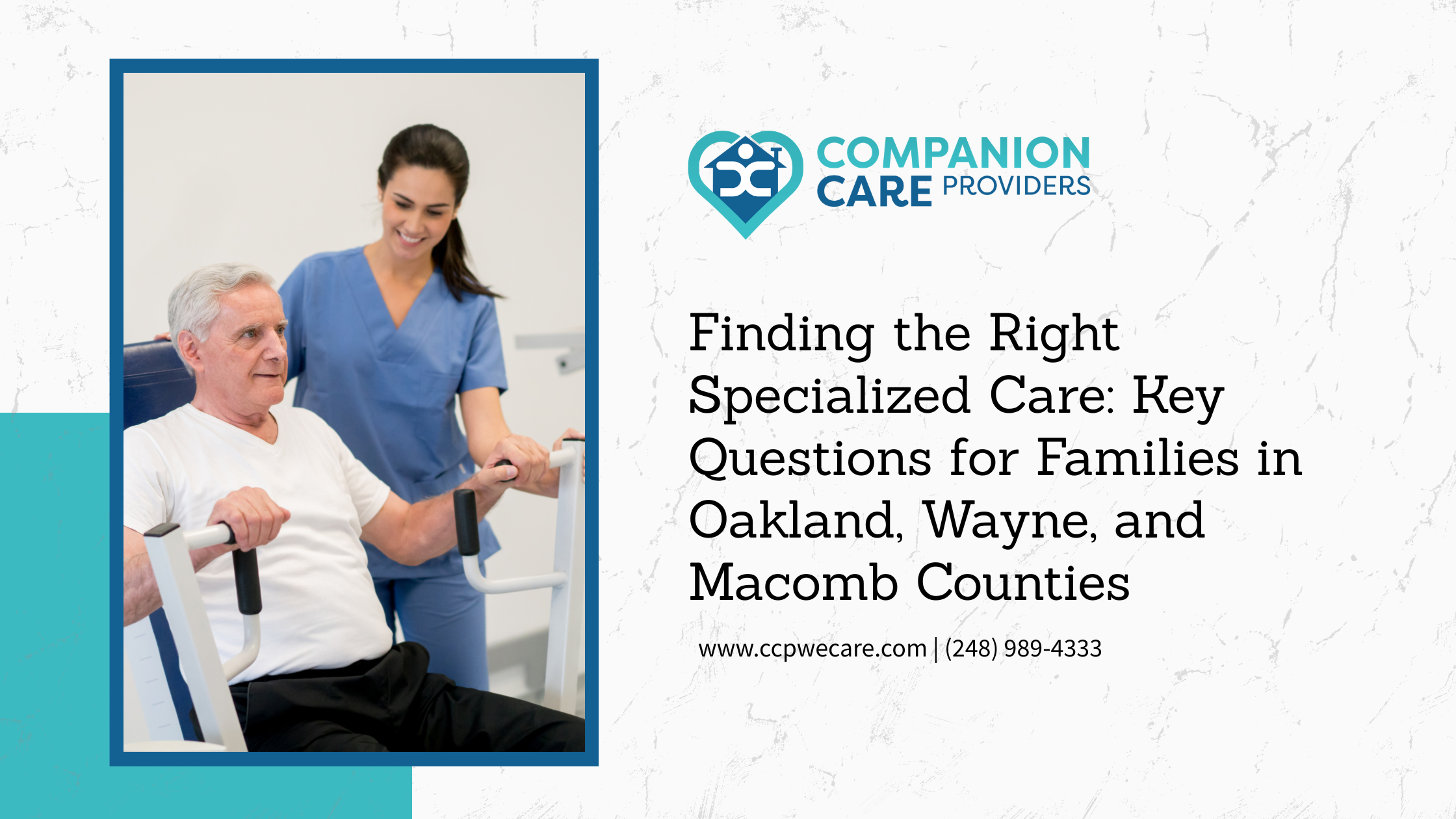Starting the Search for Specialized Care
Maya kept a notebook by the kitchen phone with questions for every appointment. Her dad’s needs changed quickly after a hospital for special care stay, and the family realized they needed specialized care at home that could adapt week by week. For many Michigan families, the right speciality care begins with asking clear, practical questions and comparing how providers respond.
What Specialized Care Really Means
Specialized care goes beyond standard routines. It is designed for people with complex medical, physical, or cognitive needs. This may include:
- Long-term management of chronic conditions
- Recovery after surgery or extended hospital stays
- Cognitive support for dementia or Alzheimer’s
- Comfort-focused palliative care during serious illness
- Special needs care for individuals with developmental or physical disabilities
The hallmark of advanced speciality care is flexibility. Plans should adjust as needs change, whether week to week or year to year.
[CTA] Learn more about Specialized Care
Why Families Choose Specialized Care at Home
Families in Oakland, Wayne, and Macomb counties often balance caregiving with jobs, children, and other responsibilities. When a loved one requires extra support, home-based specialized care helps combine oversight with the familiarity of daily life.
Some families look for stability after surgery, while others focus on complex memory or mobility needs. In either case, the goal is to create a safe, supportive environment that reduces stress for both the patient and caregivers.
If recovery begins after a hospital discharge, explore Surgery Recovery Care Services for guidance on setting up routines early.
Questions to Ask a Specialized Care Provider
Asking the right questions helps families compare providers fairly. Consider these during the search:
- What training or certifications do caregivers have in specialized care?
- How are care plans created, reviewed, and updated?
- What experience do you have with conditions like my loved one’s?
- How do you respond to sudden changes or emergencies?
- Can you share references from local families you have supported?
Clear answers build confidence and show whether a provider is equipped for both routine and unexpected needs.
Red Flags to Watch
Families should also notice warning signs that may indicate a poor fit:
- Vague or incomplete answers about staff qualifications
- No structured process for updating care plans
- Limited or no experience with your loved one’s specific condition
- Weak communication or delayed responses
- References that are general rather than local
Local Knowledge and Why It Matters
Specialized care often requires coordination with hospitals, rehab centers, and local resources. Providers rooted in Oakland, Wayne, and Macomb counties usually respond faster and understand community-based support systems. This local knowledge can make a significant difference in emergencies or when quick adjustments are needed.
Families supporting aging parents can also explore Senior Care for daily routines that support independence at home.
Specialized Care Across Different Needs
Specialized care can look very different depending on the situation. Examples include:
- Chronic conditions like heart disease or COPD
- Cognitive changes related to dementia or Alzheimer’s
- Rehabilitation needs following surgery or hospital care
- Comfort support for advanced illness
- Special needs care for developmental challenges
When memory and behavior changes complicate recovery, families can find helpful approaches in Alzheimer’s and Dementia Care.
Sharing the Work as a Family
Caregiving becomes more sustainable when the responsibilities are divided. Siblings, spouses, or extended family can share tasks to prevent burnout. For situations where continuous support is overwhelming, Respite Care Services provide families with much-needed breaks while keeping care consistent.
FAQs Families Often Ask
How is specialized care different from standard home care?
It involves tailored plans for complex or advanced needs, adjusting strategies as health changes.
What if our loved one has multiple conditions?
Look for advanced speciality care providers who can coordinate across conditions and adapt plans.
Can specialized care support both short-term and long-term needs?
Yes. Some families need short-term recovery after surgery, while others require long-term special needs care or palliative support.
Where can families find neutral guidance?
State and county caregiver networks often provide free checklists and resources to help compare providers.
Making Specialized Care Decisions With Confidence
Specialized care decisions are about more than medical tasks. They are about trust, communication, and ensuring that a loved one feels safe and respected. For families in Oakland, Wayne, and Macomb counties, the right choice balances expertise with empathy, giving peace of mind that support will adapt as life changes.

